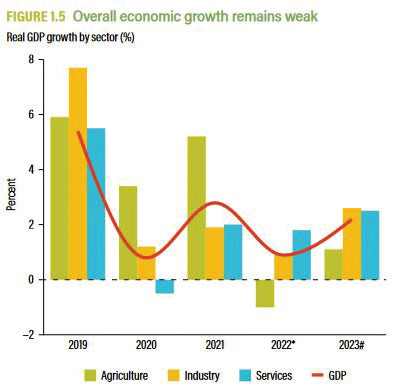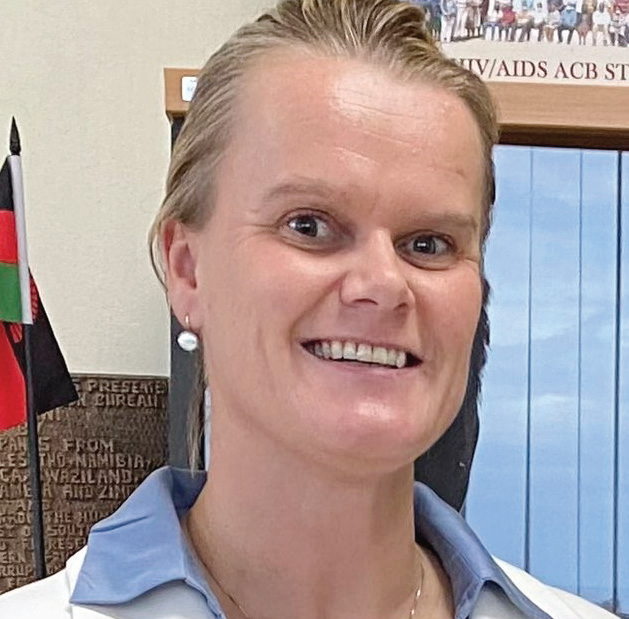Farmers from about 60 cooperatives feel shortchanged over the industrial cannabis deal touted as a potential high-value replacement for tobacco.
Some of the farmers told The Nation that they paid money for seeds and training which are yet to be delivered.
Other farmers said they have harvested the crop, but have no market.
The affected cooperatives point fingers at the Malawi Government-approved off-taker, United States Cannabis Association (USCA), for allegedly taking them for a ride after failing to deliver its contractual obligation to provide seeds, training as well as buying the crop from farmers.
In an interview, Kasungu-based Unity Cooperative Society member Sandra Ndau said besides paying K1.5 million as licence fees to the Cannabis Regulatory Authority (CRA), the cooperative also paid K100 000 as registration fee to USCA, K20 000 as individual membership fee translating to K1 620 000 for 62 members of the cooperative and K4.4 million for seeds which have not been delivered for over a year.
Kadzamira: The idea
was rushed
She said: “Since 2021, we have been to USCA, Cannabis Regulatory Authority and engaged the Ministry of Agriculture, but without help. I do not think this will be resolved. We have given up, but God knows our future.”
Financial records we have seen from a Salima-based Womeecim Cooperative, which has a membership of 75, show that their total expenditure to date stands at about K7.7 million for seeds, training and registration.
On the other hand, former Mzimba South legislator Makwenda Chunga, a member of Women of Vision, estimated their investment to be at least K100 million for seeds, greenhouses, solar power, land and labour.
“We have been pushing for them to buy but nothing even after a huge investment. The harvest in the storage facility is now useless. It has lost weight and the colour has changed,” he said.
A contract The Nation has seen shows that USCA had committed to buy from the cooperative.
“The off-taker [USCA] agrees to buy all produce from Women of Vision whose produce is the product of off-takers seeds/ seedlings,” reads a clause (f) from the contract which also restricts the grower from selling the cannabis to another party without due approval from the off-taker.
In an interview, USCA chief executive officer Paul Maulidi acknowledged the farmers’ concerns, but accused his predecessor Wezzi Ngalamira of allegedly mismanaging the funds meant to support growers.
But Ngalamira, through her lawyer, said the funds collected from farmers were used to run day-to-day operations of the organisation.
She said she is currently demanding K340 million from USCA to pay back farmers and herself as she used personal funds.
The farmers said they made payments to USCA through a firm known as Agri-Zyda where Ngalamira was also the CEO.
In a demand letter dated December 12 2022, through Blackstone Chambers, Ngalamira confirmed that Agri-Zyda was her personal firm which received funds from farmers and was used to run operations for USCA.
Reads the demand letter: “You may wish to be reminded of the obvious and a well-known fact to you that the money in question was collected by yourselves through Agri-Zyda and that the same money used by USCA and for activities of USCA to be specific.
“It is also a well-known fact that of the K340 million the sum of K253 million was collected directly from farmers and that the difference from other sources were all Ms. Ngalamira’s resourcefulness. In short, the difference between K340 million and K253 million was from Ms. Ngalamira and the USCA must return that money immediately.”
Maulidi, a lawyer himself, confirmed receiving the demand letter, but insisted the mess was all Ngalamira’s making.
He said: “We have u n v e i l e d s e r i o u s irregularities that most of the farmers paid for various services such as seeds, training of farmers and construction of greenhouses directly to either Wezi Ngalamira personal accounts or her Agri-Zyda’s bank account without the knowledge or sanction of the full board of directors of USCA and contrary to the mandate given to the CEO by the directors and the Articles and memorandum of association.”
Former CRA board chairperson Boniface Kadzamira said the problem lay in the fact that the beginning was rushed without establishing guidelines to regulate contractual agreements between farmers and investors.
He said: “We realised that CRA had no clear guidelines to regulate such contracts apart from recommending to farmers that such and such are off-takers. Perhaps that aspect was overlooked when we were developing guidelines for issuing licences.
“We as a board that time instructed the secretariat to come up with additional guidelines to regulate contracts after we noticed farmers outcry”
CRA public relations officer Excello Zidana said the guidelines were developed nine months ago and are pending the approval of the board scheduled to meet this February or March.
He also said the authority was fully aware of farmers’ concerns and that it is looking into the issue.
The Cannabis Regulation Act (2020), among other requirements, expects a farmers’ group to “submit off-taker agreement, if the organisation will not process its own cannabis”.
In 2021, USCA announced that it would unveil retired US boxer Mike Tyson as brand ambassador, further raising hope and curiosity among farmers.
While there were indications that a delegation, including government officials had travelled to the US to negotiate with Tyson, there has been no further update.
Maul idi sa id the new management is following up on the issue.
Malawi in 2020 amended its laws to provide for legal cultivation and export of cannabis for industrial and medicinal use, but still prohibits Indian hemp for recreational purposes.
The post Hemp market turns smoky first appeared on The Nation Online.
The post Hemp market turns smoky appeared first on The Nation Online.
 Moni Malawi
Moni Malawi 

